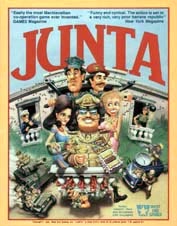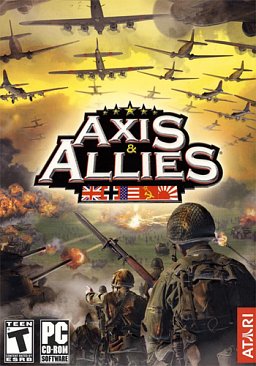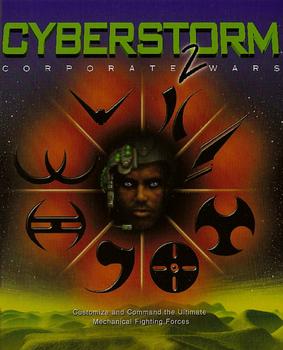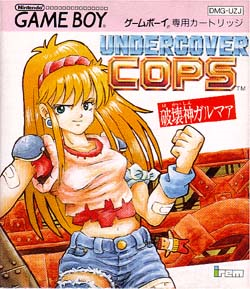
Mario Party 3 is a party video game developed by Hudson Soft and published by Nintendo for the Nintendo 64. The third installment in the Mario Party series, it was first released in Japan on December 7, 2000, in North America on May 7, 2001, in Australia on September 3, 2001, and in Europe on November 16, 2001. As with the previous installments, the player chooses between eight playable characters: Mario, Luigi, Princess Peach, Yoshi, Wario, and Donkey Kong from the first two games, alongside newcomers Princess Daisy and Waluigi. The game features duel maps, where two players try to lower each other's stamina to zero using non-player characters such as Chain Chomps.

Replay value is the potential of a video game or other media products for continued play value after its first completion. Factors that can influence perceived replay value include the game's extra characters, secrets and alternate endings. The replay value of a game may also be based entirely on the individual's tastes. A player might enjoy repeating a game because of the music, graphics, gameplay or because of product loyalty. Dynamic environments, challenging AI, a wide variety of ways to accomplish tasks, and a rich array of assets could result in a high replay value.
In tabletop games and video games, game mechanics are the rules or ludemes that govern and guide the player's actions, as well as the game's response to them. A rule is an instruction on how to play, a ludeme is an element of play like the L-shaped move of the knight in chess. A game's mechanics thus effectively specify how the game will work for the people who play it.

Junta is a board game designed by Merlin Southwell first published in 1978 by Creative Wargames Workshop and published, as of 1985, by West End Games. Players compete as the corrupt power elite families of a fictional parody of a stereotypical banana republic trying to get as much money as possible into their Swiss bank accounts before the foreign aid money runs out. Fighting in the republic's capital during recurrent coup attempts encompasses most of the game's equipment, rules and playtime. This game-within-the-game is however actually tangential to the players' main goal.

Axis & Allies is a real-time strategy World War II video game developed by TimeGate Studios and published by Atari for Microsoft Windows. The game was released on November 2, 2004. It is based on the board game series Axis & Allies from Milton Bradley and also on TimeGate's Kohan series. Set in the years after Japan and the United States entered into the war, the game allows the player to act as a World War II commander to build military forces to fight against other generals, using military units and technologies from the war. The player is able to rewrite and recreate the history of World War II.

Horus Heresy is an out-of-print collectible card game originally produced in 2003 by Sabertooth Games. The game is set in the Warhammer 40,000 fictional universe developed by parent company Games Workshop. It attempts to recreate the struggle between the Loyalist forces of the Emperor of Mankind and the Traitor forces of Warmaster Horus, during the civil war known as the Horus Heresy. The game's development and sale by the publisher were discontinued in 2008, following financial difficulties at the parent company.

Need for Speed: Carbon is a 2006 racing video game and the tenth installment in the Need for Speed series. Developed by EA Black Box, Rovio Mobile and published by Electronic Arts, it was released on October 31, 2006, for the PlayStation 2, PlayStation 3, Xbox, Xbox 360, GameCube, Windows, and Mac OS X, and on November 19, 2006 as a launch title for the Wii and in 2008 for arcade cabinets. The game sees players conducting illegal street races within the fictional city of Palmont City, with the game's main story taking place after the events of Need for Speed: Most Wanted and focusing on the player's character taking control of the city from various street-racing gangs. While the gameplay is similar to its predecessor, Carbon introduced a number of new features, including crews and racing wingmen, Touge-styled racing events, and greater customization options.

64 de Hakken!! Tamagotchi: Minna de Tamagotchi World is a party video game developed by Bandai and Hudson Soft for the Nintendo 64. It released only in Japan on December 19, 1997. It is a virtual board game based on the Tamagotchi toy. This was the first game by Bandai on the Nintendo 64 system and it is the only Tamagotchi-branded game on the system. The game introduces "Tsukuzuku Tamagotchi", a special variant of Tamagotchi.

Planet Puzzle League, known as Puzzle League DS in Europe, and as Panel de Pon DS in Japan, is a video game for the Nintendo DS handheld video game console in the Puzzle League Panel de Pon visual matching puzzle game series. In North America, Planet Puzzle League is part of the Touch! Generations brand; in Japan, Panel de Pon DS is marketed in the general Touch! brand. The publisher for the game is Nintendo, and the developer is Nintendo's second-party developer Intelligent Systems, creator of the original Panel de Pon and its cult classic English-language adaptation Tetris Attack. The game was released in Japan on April 26, 2007 in North America on June 4, 2007, and in Europe on June 29, 2007.

A dialogue tree, or conversation tree, is a gameplay mechanic that is used throughout many adventure games and role-playing video games. When interacting with a non-player character, the player is given a choice of what to say and makes subsequent choices until the conversation ends. Certain video game genres, such as visual novels and dating sims, revolve almost entirely around these character interactions and branching dialogues.

Break the Bank is an American game show created by Jack Barry and Dan Enright and produced by their production company, Barry & Enright Productions. It was the first game show packaged by Barry and Enright as a tandem since their fall from grace following the 1950s quiz show scandals.

CyberStorm 2: Corporate Wars is a turn-based and real-time strategy game developed by Dynamix and released in 1998 as a sequel to MissionForce: CyberStorm. It was published by Sierra On-Line.
World of Warcraft, or WoW, is set in a fictional universe, its primary setting being the planet of Azeroth. The first expansion, The Burning Crusade, introduced a second planet, Outland. Wrath of the Lich King and Cataclysm expanded upon Azeroth and respectively added Northrend, the frigid northern continent of Azeroth, and drastically changed various other continents by destroying some and unveiling new ones. The next expansion, Mists of Pandaria, added Pandaria, the southern continent previously hidden behind a perennial mist cover. Warlords of Draenor introduced the planet of Draenor, a version of Outland in a different timeline before its partial destruction. The Legion expansion took adventurers to the Broken Isles, an island chain near the Maelstrom in the middle of the Great Sea, and the damaged planet Argus, the headquarters of the Burning Legion. The seventh expansion, Battle for Azeroth, added two new island continents to the center of Azeroth: Kul Tiras and Zandalar. The latest expansion, Shadowlands, introduced the eponymous Shadowlands, a realm composed of five major zones: Bastion, Maldraxxus, Ardenweald, Revendreth, and the Maw.

Undercover Cops: Hakaishin Garumaa, sometimes referred to with or without subtitle as Undercover Cops Gaiden (アンダーカバーコップス外伝), is a 1993 turn-based traditional game developed and published by Irem exclusively in Japan for the Nintendo Game Boy on December 10, 1993. It is a spin-off of Irem's 1992 beat 'em up arcade game simply titled Undercover Cops. It is also the second-to-last game Irem released for the Game Boy, with Daiku no Gen-san - Robot Teikoku no Yabō being the last.

Power Eleven (パワーイレブン) is a 1991 Japan-exclusive football video game with top-down perspective, published by Hudson Soft for the PC Engine. It was part of the Power Sports Series, a series of sports games released between 1988 and 1998.

Need for Speed: Most Wanted is a 2005 open-world racing video game, and the ninth installment in the Need for Speed series. Developed by EA Canada and EA Black Box and published by Electronic Arts, it was released in November 2005 for PlayStation 2, Xbox, GameCube, Nintendo DS, Microsoft Windows, Game Boy Advance and Xbox 360. An additional version, Need for Speed: Most Wanted 5-1-0, was released in the same year for PlayStation Portable. The game focuses on street racing-oriented gameplay involving a selection of events and racing circuits found within the fictional city of Rockport, with the game's main story involving players taking on the role of a street racer who must compete against 15 of the city's most elite street racers to become the most wanted racer of the group, in the process seeking revenge against one of the groups who took their car and developing a feud with the city's police department.
This list includes terms used in video games and the video game industry, as well as slang used by players.

WWE SuperCard is a 2014 digital collectible card game featuring WWE Superstars for iOS and Android, and a mobile installment in the WWE video game series, under the WWE 2K banner, developed by Cat Daddy Games and published by 2K. The three game series includes NHL SuperCard, NBA SuperCard, and WWE SuperCard.

The Jackbox Party Pack is a series of party video games developed by Jackbox Games for many different platforms on a near-annual release schedule since 2014. Each installment contains five games that are designed to be played in groups of varying sizes, including in conjunction with streaming services like Twitch which provide means for audiences to participate.

Hearthstone is a digital collectible card game released by Blizzard Entertainment in 2014, available for Microsoft Windows and macOS PCs and iOS and Android smartphones. The game is free-to-play, with players gaining in-game currency and card packs via winning matches and completing quests, while real-world money can be spent to acquire additional card packs and cosmetic items. The game has been critically well-received and financially successful, estimated in August 2017 to earn nearly US$40 million per month. As of November 2018, Blizzard has reported more than 100 million Hearthstone players. Blizzard has continued to expand the game with the addition of multiple expansions, adventures and game modes.
















